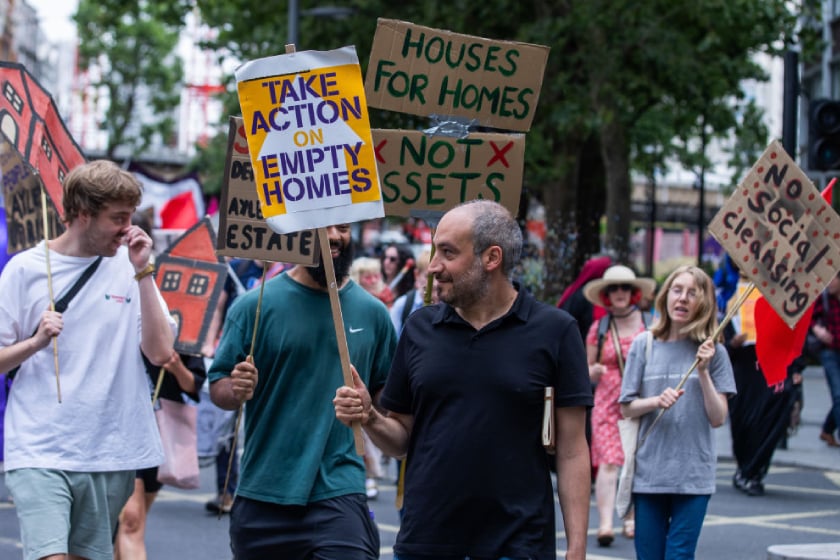How to protect clients amid increasing HMRC enquiry activity
With enquiry activity increasing as HMRC pursues a £42 billion tax gap, and the department’s enquiry tactics...
READ MORE
A new report from the London School of Economics paints a bleak picture of the gap between rich and poor in British society.

New research from LSE’s Centre for Analysis of Social Exclusion (CASE), The scale and drivers of ethnic wealth gaps across the wealth distribution in the UK: evidence from Understanding Society finds that people in all ethnic minority groups except those who had Indian heritage were found to have substantially less wealth than White Britons.
The research, by Eleni Karagiannaki, Assistant Professorial Research Fellow at CASE, holds valuable lessons for accountants who work with individuals as well as with micro and small businesses.
“As with overall income and wealth inequality, ethnicity wealth gaps in the UK are large and entrenched,” says Priya Sahni-Nicholas, co-executive director of The Equality Trust, a registered charity that works to reduce social inequality.
Alongside the vastly different rates of home ownership, there is disparity in the mortgage debt carried by different groups. Only 47% of the White British homeowners have mortgage debt, compared to 88% Black African homeowners.
Karagiannaki suggests reforms to capital gains tax could help limit disproportionate benefits to people from advantaged ethnic backgrounds with revenues used to fund policies that increase homeownership for more disadvantaged groups.
She also suggests that expanding or strengthening shared equity policies could help increase homeownership among ethnic minorities.
A typical person with a Black African, Black Caribbean or Bangladeshi background was found to have no significant level of household worth as opposed to a typical White Briton, with a household net worth of £140,000.
“Many people will be surprised to learn how little wealth and income most of the UK has compared to the top 1%,” says Sahni-Nicholas. “The richest 50 families in the UK hold as much wealth as half our population combined, and we have found that since 1990 billionaire wealth has increased by over 1,000%. These high levels of inequality result in a poorer quality of life for all Britons."
White Britons are also three times more likely than those who are from Black African or Bangladeshi ethnic groups, and more than two times more likely than those with a Pakistani background, to hold investment accounts. Karagiannaki suggests a remedy: making available more appropriate products and services that help to boost savings.
Bangladeshi, Black African and Black Caribbean ethnic groups are carrying the highest rate of debt, at 68-70%. The lowest, 56-57% was among White Britons, Indian and Pakistani ethnic groups.
Just one in 10 individuals in the Indian ethnic group and around 15% of the White British and Pakistani ethnic groups are in net debt, compared to more than 30% of people in each of the Black Caribbean, Bangladeshi and Black African ethnic groups.
Karagiannaki suggests ways to correct these inequalities, including reducing exposure to high-cost liabilities to boost savings as well as increasing the availability of affordable credit.
Accountants can help address inequality. When considering the wealth gap, accountants need to look at business investments and measure returns holistically, suggests Rob Whiteman, IFAC Board Technical Advisor. Ideally, they would increase the quality of life for communities through better facilities and increased access to technology or housing.
Accountancy firm Grant Thornton is also Increasing sponsorship, mentoring and coaching opportunities for minority ethnic colleagues, with targets for advancement across service lines and training for leaders.
Other ways accountants can use their financial expertise to help drive social equality by working with clients in ethnic minority groups include:
Inequality levels will peak in 2027, according to the Resolution Foundation, an independent think tank dedicated to improving living standards for those in lower socio-economic groups.
Its Living Standards Outlook 2023 found absolute poverty in the UK will rise from 17.2% in 2021-22 to 18.3% in 2023-24 or, put another way, another 800,000 people in the UK will be in poverty.
Action, then, is imperative.
All data: The scale and drivers of ethnic wealth gaps across the wealth distribution in the UK: evidence from Understanding Society, Eleni Karagiannaki Centre for Analysis of Social Exclusion (CASE) and the International Inequalities Institute, LSE.